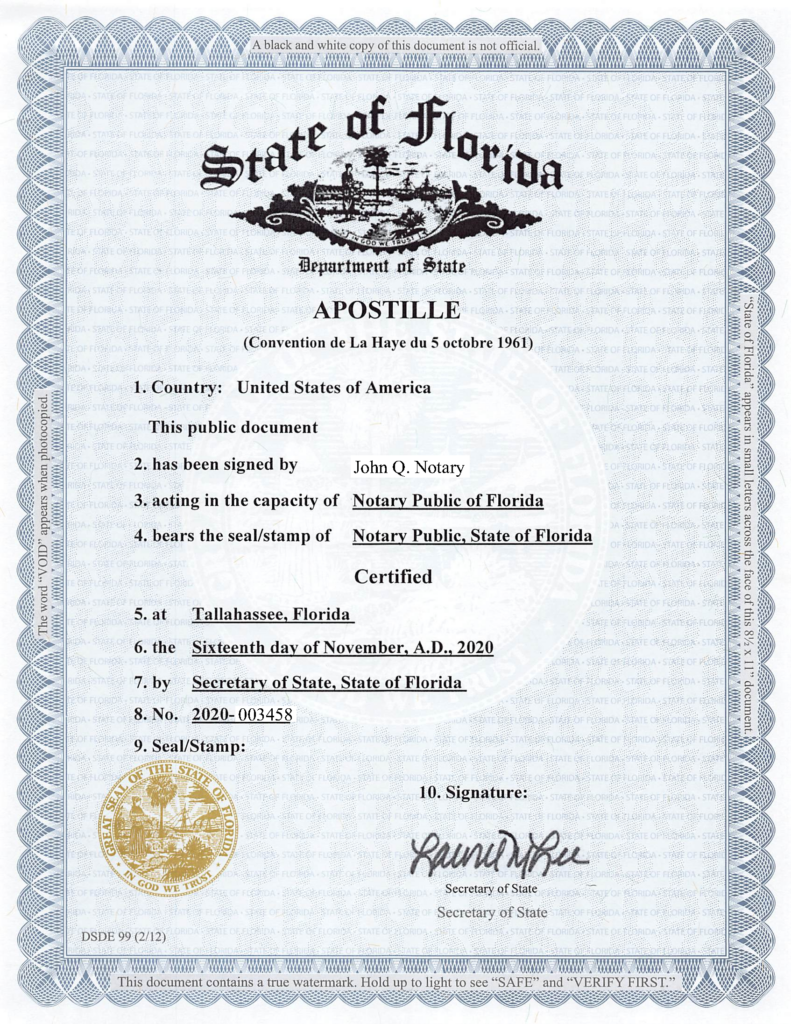Diving Into the Factors Behind the Required Requirement of Apostille Accreditation for Legal Papers
In the world of lawful documents, the required need of apostille accreditation has come to be an essential facet that significantly influences the validity and recognition of lawful papers on a worldwide scale. Understanding the reasoning behind this need entails diving into the complex internet of legal intricacies, historical criteria, and worldwide contracts that emphasize the relevance of apostille accreditation in today's interconnected world. By checking out the underlying reasons behind this prevalent requirement, a clearer image emerges of why this seemingly administrative procedure holds such tremendous value for organizations, people, and federal governments alike.
Historical Development of Apostille Qualification
Exactly how did the concept of apostille qualification evolve over time to end up being a vital component of global document validation? The requirement for a streamlined approach of validating files for usage throughout boundaries became apparent as global profession and traveling enhanced.
At first taken on by a few European nations, the Apostille Convention slowly got global acceptance because of its performance and performance in confirming the authenticity of main documents. Over the years, the convention's reach increased as more countries joined, acknowledging the apostille as a globally approved kind of paper verification. Today, apostille certification has actually come to be a basic requirement for validating legal documents in global purchases, making sure smooth interaction and lawful procedures between nations.
Simplifying International Paper Legalisation
The streamlining of worldwide file legalization treatments has actually substantially enhanced performance in cross-border transactions. Simplifying the procedure of legislating documents for worldwide usage has actually become critical in helping with swift and smooth purchases between countries. One of the crucial mechanisms that have added to this simplification is the fostering of the Apostille Convention, which provides a standardized approach for validating the authenticity of files across taking part countries.
By sticking to the Apostille needs, countries consent to acknowledge each other's public papers as legitimate without the demand for more legalisation. This eliminates the prolonged and often troublesome procedure of numerous verifications by different authorities, saving time and resources for individuals and businesses taken part in global tasks.

Making Sure Paper Authenticity and Validity
To ensure the credibility and credibility of legal documents in global deals, stringent verification processes are vital - Houston Apostille. Legal papers play an essential duty in cross-border negotiations, and ensuring their legitimacy is extremely important to promote the stability of such transactions. By requiring apostille check my reference qualification for legal documents, authorities aim to authenticate the beginning of records and verify the signatures of people included. This procedure assists prevent fraudulence, misrepresentation, and other negligences that might jeopardize global contracts or lawful proceedings.
Additionally, verifying the credibility of lawful papers via apostille certification improves trust fund and confidence among celebrations involving in international deals. It offers assurance that the files offered are genuine and legally binding, thus minimizing the risks related to deceitful tasks. In addition, ensuring file credibility with apostille accreditation streamlines the legalisation procedure, making it extra efficient and reputable for organizations and individuals carrying out service throughout boundaries. Eventually, by upholding strict verification requirements, apostille qualification contributes to a more safe and transparent worldwide legal framework.

Assisting In Cross-Border Legal Recognition
In the realm of international transactions, the apostille certification not only ensures the authenticity and validity of lawful papers yet also plays a pivotal duty in helping with cross-border legal recognition (Houston Apostille). When lawful papers bear an apostille certification, they are conveniently accepted by foreign authorities without the demand for additional Our site verification. This structured procedure accelerates the recognition of documents in various countries, advertising effectiveness and reducing bureaucratic hurdles in legal issues that transcend national boundaries
Assisting in cross-border legal acknowledgment via apostille accreditation promotes trust fund and confidence in the authenticity of records exchanged in between countries. By sticking to the criteria established forth by the Apostille Convention, countries agree to honor the apostille seals fastened to records from other member countries, therefore simplifying the procedure of lawful acknowledgment throughout boundaries.
Conformity With International Treaty Standards
Conformity with worldwide treaty standards is essential for ensuring the consistent application of lawful policies across getting involved countries. The Apostille Convention, established in 1961, outlines the needs for the approval of public papers among participant nations.
The Apostille accreditation, as mandated by the treaty, serves as a warranty of authenticity for documents such as birth certifications, marital relationship licenses, court judgments, and notarized acts. This standardized approach aids stop fraud and makes certain that legal documents originating from one participant country are conveniently accepted in another. By abiding with worldwide treaty criteria, nations show their commitment to maintaining the principles of transparency, trust fund, and collaboration in lawful matters on an international scale.
Conclusion

In the world of legal documentation, the compulsory demand of apostille qualification has actually become a necessary element that significantly influences the legitimacy and recognition of lawful papers on an international range. Today, apostille certification has become a right here standard demand for verifying legal papers in global transactions, making sure smooth interaction and legal process between countries.
In addition, validating the authenticity of lawful records via apostille accreditation enhances depend on and confidence amongst events engaging in worldwide deals.In the world of international purchases, the apostille qualification not just makes certain the credibility and validity of legal papers but also plays a crucial function in assisting in cross-border lawful acknowledgment. By adhering to the criteria set forth by the Apostille Convention, nations agree to honor the apostille seals attached to records from various other member nations, therefore simplifying the procedure of lawful acknowledgment across boundaries.